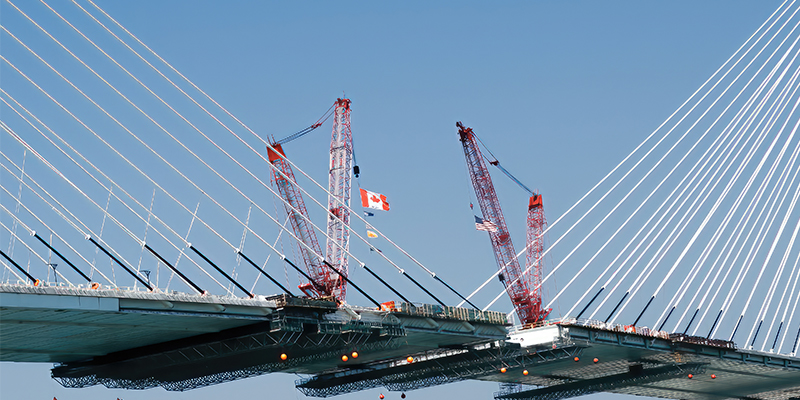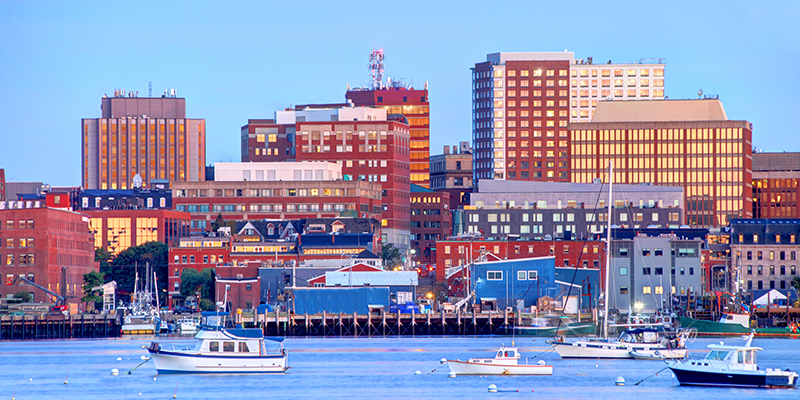In the post-pandemic office market, the “flight to quality” trend among tenants has been growing alongside increased demands for sustainability. Consequently, demonstrating to clients that a property is equipped with the latest in energy-saving technologies and smart materials is the new standard. And, increasingly, clients are looking beyond their office windows to take a more holistic approach to sustainability, considering factors such as the city’s commitment to reducing carbon dioxide emissions, plans to build electric vehicle infrastructure or the stringency of local building policies.
With that in mind, 42Floors set out to compile a list of the most eco-friendly office markets across the U.S. by ranking cities using eight metrics. Specifically, entries received points for their performances across indicators that rated the local office inventory (including certifications, energy efficiency and materials used), as well as the environment in which the assets are located (like building policies, EV charging stations, public transit and walkability).
Washington, D.C., Ranks No. 1
A nationwide ranking of the 10 most eco-friendly office markets featured Washington, D.C., in the leading position with a grand total of 71 points.
Among its best-performing indicators was its share of energy-efficient office space per capita (90.4 square feet). The nation’s capital also did well in terms of its green commuting with roughly 20% of Washingtonians walking, riding a bike or using public transportation to commute.
The city also boasted the third-highest LEED score (Leadership in Energy and Environmental Design, the rating system used by the U.S. Green Building Council to measure a building’s sustainability and resource-efficiency) with some 40% of office spaces in Washington, D.C. being LEED Gold-certified. Even more impressive, approximately 12.4% of buildings in the inventory have been awarded LEED Platinum, the highest rating in class.
San Francisco Leads for Share of LEED-certified Offices
In second place, San Francisco picked up 66.4 points. In this case, its LEED score — the highest across the top 10 — was a significant contributor to its tally. In fact, according to the latest CommercialEdge data, nearly one-quarter of the properties that make up the San Francisco office market were LEED Platinum-certified.
The city also came in third in terms of its share of Energy Star square footage per capita (standing at 86 square feet), in addition to strong showings for its green commuting and adherence to building policies provided by the American Council for an Energy-Efficient Economy (ACEEE).
Atlanta and Boston Boast Highest Shares of EV Charging Stations Among Top Eco-Friendly Markets
With 109 units per 100,000 residents, Atlanta had the highest ratio of EV charging stations on the list by a considerable distance. Runner-up Boston had 62 charging stations per 100,000 residents.
With roughly 25% of buildings in its inventory sporting a wood or glass exterior, Atlanta managed to outrank other cities on the list for the alternative façade metric, as well. Meanwhile, Boston snatched second place for its performance across the green commute metric with one-third of its residents commuting to work by foot, public transit or bike. The city also placed fourth for its share of LEED-certified office buildings in its inventory, as well as the square footage of energy-efficient office space per capita.
Chicago Stands Out With LEED Platinum- and Gold-certified Office Buildings
In seventh place, Chicago ranked seventh, boasting top performances for its LEED score and ACEEE building policies scorecard. More precisely, approximately 56% of its inventory was comprised of LEED Gold- and Platinum-certified buildings.
Notably, California was the only state to feature two entries in the top 10 most eco-friendly office markets in the U.S. While San Francisco came in second, Oakland’s 45-point total secured it an eighth-place finish. Oakland witnessed the second-highest jump in the percentage of LEED-certified office buildings in its inventory between 2018 and 2022. The city also earned points for having the lowest CO2 emissions among the cities in the ranking.
Finally, Austin, Texas, which landed in ninth place with a total of 44.2 points, outperformed other entries on the list with its increase in LEED-certified office buildings within the local inventory. According to the latest data, the city’s green office inventory grew by 5% between 2018 and 2022.
For a more detailed view of the study’s methodology — as well as additional highlights of the most eco-friendly markets across the Northeast, South, Midwest and West — read the full report on 42Floors.








